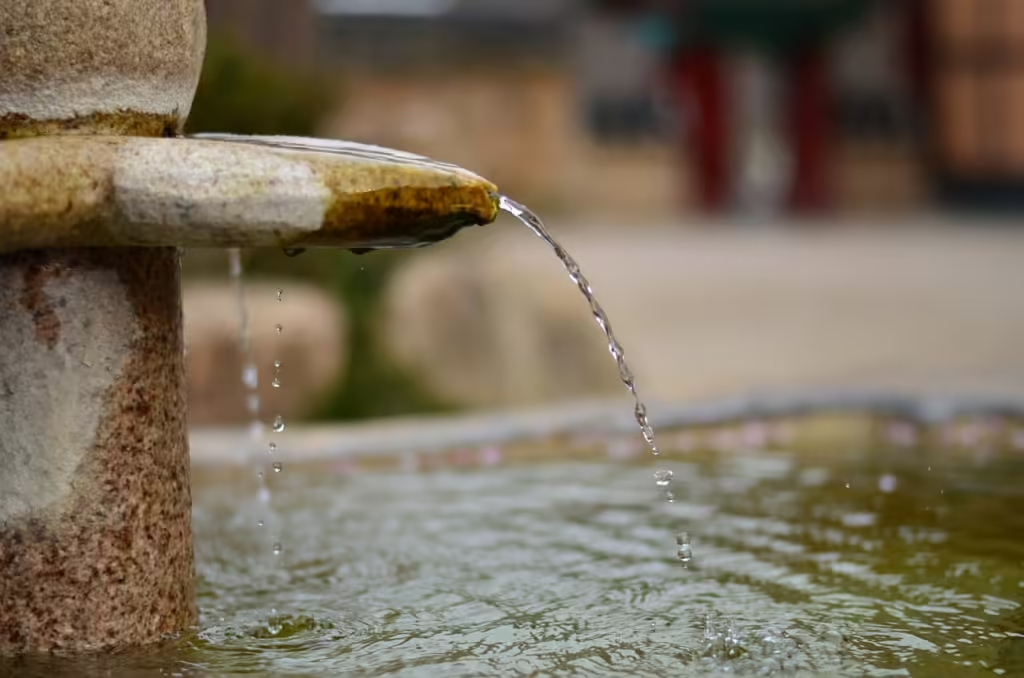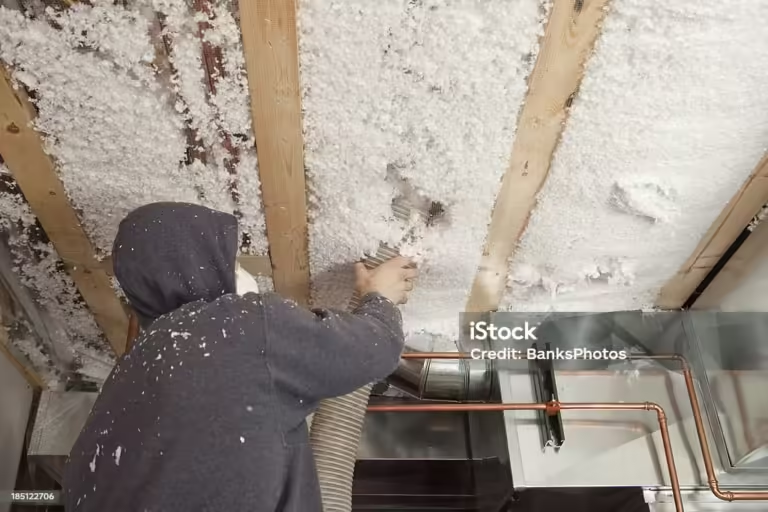Can your neighbor run gutters towards your house? 5 Easy Steps to Resolve the Issue

Gutters are essential for managing water flow and protecting homes from water damage. However, the direction in which gutters are installed can have significant consequences, especially if they are directed towards a neighbor’s property. If you are concerned that your neighbor’s gutters might be directed towards your house, here’s what you need to know.
Understanding Gutter Regulations
In most places, there are specific regulations that prevent homeowners from directing water runoff onto a neighbor’s property. These rules are designed to prevent water damage and potential disputes between neighbors. It’s important to check your local building codes and regulations to understand what is allowed in your area. In general, gutters should be designed to direct water towards a drainage system or a location where it won’t cause damage.
Potential Issues with Misaligned Gutters
When a neighbor’s gutters are directed towards your house, several problems can arise:
- Water Damage: The most immediate concern is water seeping into your foundation, basement, or crawl space, which can cause structural damage over time.
- Erosion: Water pouring onto your property can lead to soil erosion, affecting your landscaping and potentially destabilizing your home’s foundation.
- Increased Moisture: Excess moisture can lead to mold growth and other health hazards, particularly in areas that remain damp for extended periods.
Legal Considerations
If your neighbor’s gutters are causing water damage to your property, you may have legal recourse. You should first try to resolve the issue amicably by discussing your concerns with your neighbor. If this doesn’t work, you may need to consult with a lawyer to understand your options, which could include mediation or legal action to enforce local building codes.
How to Address the Issue
Talk to Your Neighbor: Start by discussing the issue with your neighbor. They may not be aware that their gutters are causing a problem. A friendly conversation can often resolve the issue without escalating to legal action.
Check Local Codes: Research local regulations concerning water runoff. If your neighbor is violating these rules, you may have a strong case to request that they redirect their gutters.
Install a French Drain: If water runoff is a persistent problem, consider installing a French drain on your property to divert water away from your home. This can be a good solution if you want to protect your home without getting into a dispute with your neighbor.
Raise the Issue with Local Authorities: If your neighbor refuses to cooperate, you can report the issue to your local building authority. They may inspect the situation and require your neighbor to correct the problem.
Legal Action: As a last resort, you may need to take legal action to protect your property. This should only be considered if all other options have been exhausted.
Your Rights and Legal Standpoint
- Understanding Property Boundaries When it comes to gutters, the direction in which they drain can significantly impact both properties. A neighbor’s gutters directing water toward your home can lead to water damage, erosion, and other costly issues. In many regions, property laws and local ordinances exist to prevent such situations. Generally, property owners are responsible for ensuring that their drainage systems do not cause harm to neighboring properties.
- Legal Remedies If your neighbor’s gutters are causing water to flow onto your property, you may have legal recourse. The first step is usually to address the issue directly with your neighbor in a calm and clear manner. If this approach does not resolve the problem, it may be necessary to seek legal advice or consult with your local municipality. Many areas have specific regulations about drainage, and your neighbor may be in violation of these rules.
Steps to Protect Your Property
- Install a French Drain One effective way to protect your property from water damage caused by your neighbor’s gutters is to install a French drain. This underground drainage system captures water and directs it away from your home, preventing potential flooding or foundation issues. Installing a French drain is a proactive measure that can save you from dealing with more severe problems in the future.
- Building a Barrier Another option is to build a physical barrier along the property line. A properly constructed barrier can redirect water flow away from your home and prevent your neighbor’s gutter runoff from causing damage. It’s essential to ensure that any barrier complies with local building codes and does not cause water to accumulate on your neighbor’s property.
- Consult a Professional Before taking any major steps, it’s wise to consult with a professional, such as a landscape architect or a drainage expert. They can assess the situation and provide you with recommendations tailored to your specific property. This advice can help you make informed decisions that effectively protect your home while maintaining good relations with your neighbors.
- Negotiating with Your Neighbor Open communication is often the best solution. Discussing the problem with your neighbor and working together to find a solution can prevent the need for legal action and maintain a positive relationship. Offer to share the costs of redirecting the gutters or making necessary adjustments that benefit both properties.
Potential Consequences for Your Neighbor
- Liability for Damages If your neighbor’s gutters cause significant damage to your property, they may be liable for the costs of repairs. In some cases, this can include damage to your foundation, landscaping, or even interior water damage. Documenting the damage and keeping records of any communications with your neighbor can be essential if you need to pursue legal action.
- Violation of Local Ordinances In many areas, improper drainage can lead to fines or other penalties. If your neighbor’s gutters are in violation of local regulations, they may be required to make corrections at their own expense. Reporting the issue to local authorities can sometimes be necessary if your neighbor is uncooperative.
Conclusion
Yes, your neighbor can run gutters towards your house, but it depends on local regulations. Generally, it is not allowed if it causes water runoff that damages your property. If this happens, you may have legal recourse to address the issue. It’s important to address any issues with a neighbor’s gutters before they cause significant damage to your property. By understanding local regulations, discussing the issue with your neighbor, and considering potential solutions, you can protect your home from unwanted water damage. Remember, communication is key, and resolving the issue amicably is always the best first step.
FAQs
Can I take legal action if my neighbor's gutters cause damage to my property?
Yes, if your neighbor’s gutters are causing water damage to your property, you may have legal recourse. It’s best to consult with a lawyer to understand your options.
How can I protect my property from water runoff?
You can protect your property by installing a French drain, ensuring proper grading, and using other drainage solutions to redirect water away from your home.
What should I do if my neighbor refuses to redirect their gutters?
If your neighbor refuses to address the issue, you can report it to your local building authority or seek legal advice to enforce local regulations.
Are there any regulations about gutter direction in residential areas?
Yes, most places have regulations that prevent homeowners from directing water runoff onto a neighbor’s property. You should check your local building codes for specific rules in your area.
Can a conversation with my neighbor solve the problem?
Often, a simple conversation can resolve the issue, as your neighbor may not be aware of the problem. It’s always best to try discussing the issue before taking any further action.






